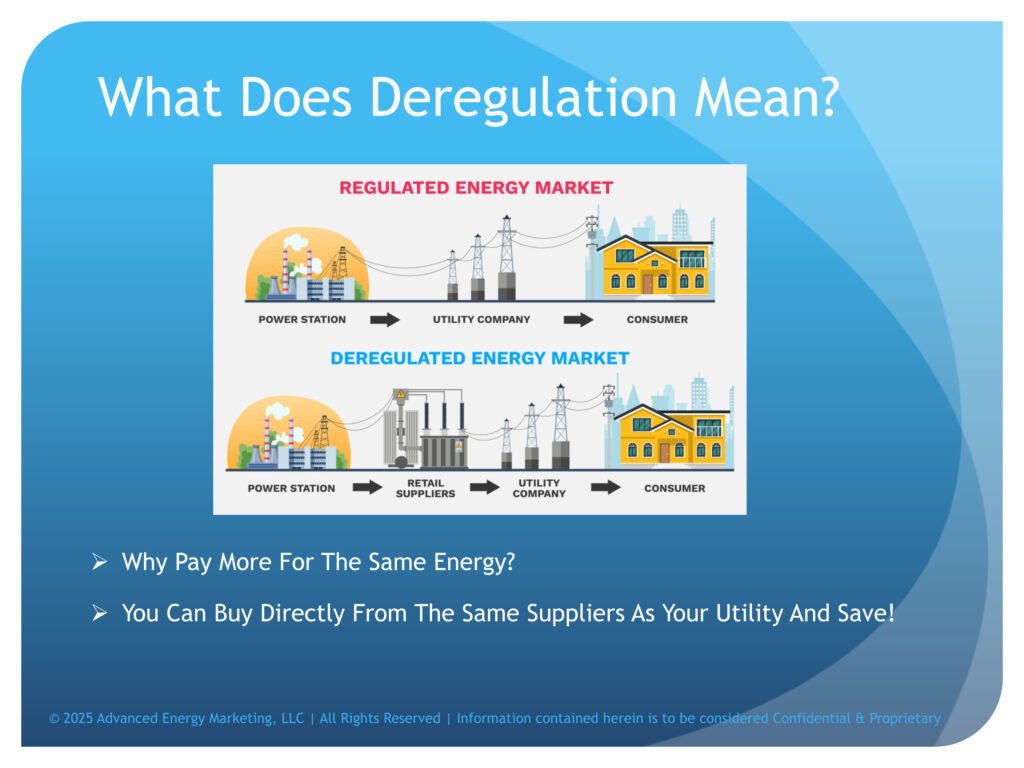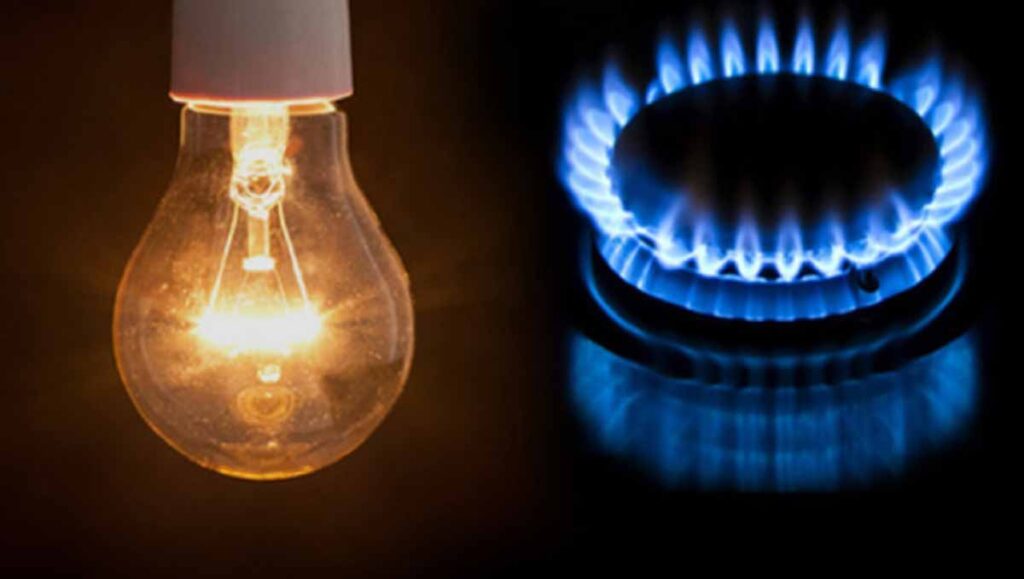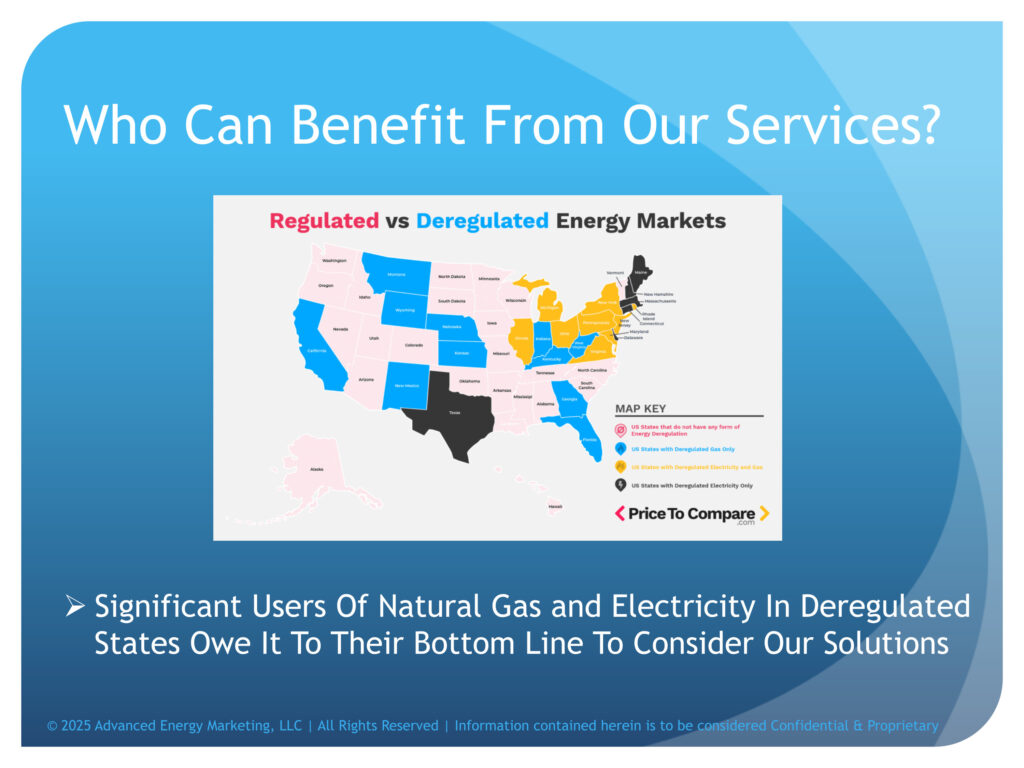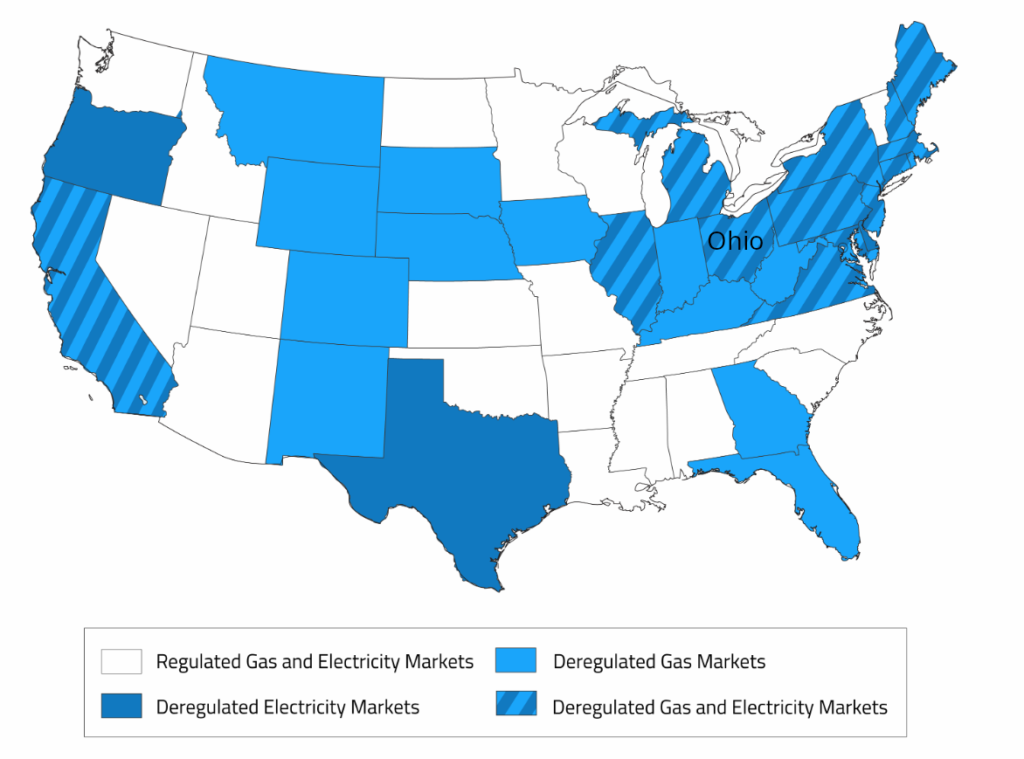Regulated vs. Deregulated Markets

You Have An Advantage
You’re in a deregulated state, but what does that really mean?
In regulated states, the utilities own the generation plants, own the transmission lines, and deliver to and service the end-user customer accounts.
In deregulated states, this unitary system has been divided into three components:- Generation- Sale of supply, and- Transmission and delivery.
When deregulation happened, utilities were given the choice of which of these three components they wanted to retain. And they all chose to continue in the retail delivery and servicing business. Which is great for everyone, because when there’s an outage or a billing issue, you still call your local utility.
Brands?
What “brand” of natural gas and electricity do you currently use?
It’s an absurd question, right? Natural gas and electricity aren’t branded products, but bulk commodities. And because your utility is limited to that third market component, transmission and delivery, they have to go into the market and buy natural gas and electricity, which they then mark up before selling them to you.
So here’s the practical impact of deregulation on you:
You now have the ability to eliminate the mark-up your utility charges you for your natural gas and electricity supply. Plus, you have the option to insulate yourselves from month-to-month market volatility.


Who? YOU!
We operate only in deregulated states because these are the states where we can help.
The next step, if you’re interested in learning more, is to introduce you to our partner, who will describe our auction process. If you elect to move forward, we would conduct a no-cost analysis of your historic usage of natural gas and electricity and create an auction strategy for how you can best obtain certainty going forward.
And you will also have the ability on the day of the auction to lock-in the best price available

